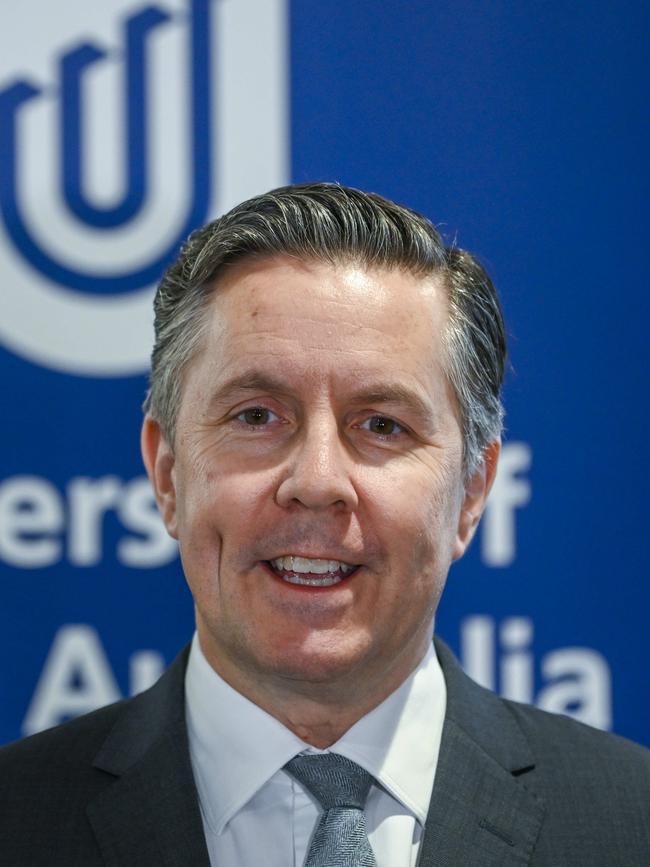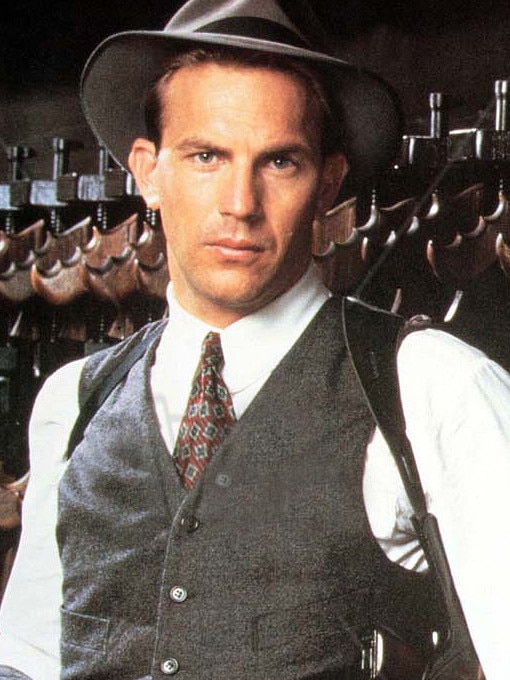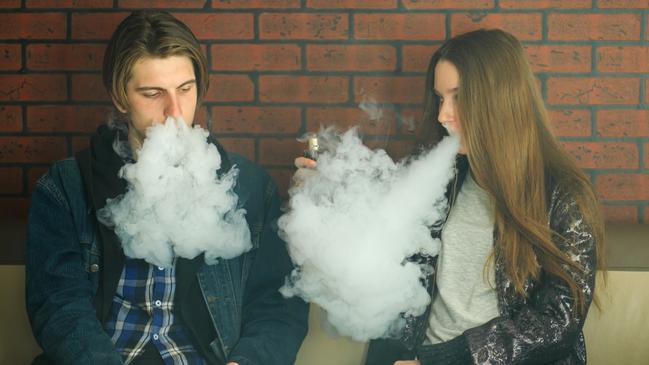Campbell: Unlikely support for vapes has government fighting a losing battle
Given the failure to stop black market cigarettes you might have thought governments would be wary of opening a second front in the nicotine war by trying to eliminate vaping, writes James Campbell.
Opinion
Don't miss out on the headlines from Opinion. Followed categories will be added to My News.
Given the spectacular failure of the war on black market cigarettes you might have thought governments would be wary of opening a second front in the nicotine war by trying to eliminate vaping.
But the desire to police other people’s behaviour is strong among Australia’s public health bureaucrats and – after years of inaction – they have found in Mark Butler a man prepared to introduce “world-leading” legislation to outlaw the sale, supply, commercial possession, and the advertising, as well as the manufacture, of vapes in this country.
No one doubts vaping is bad for you and it would be better if people didn’t use them.
But the reality is they’re out there, people are using them and the chances of the government succeeding in getting rid of them should be judged by how successful we have been at controlling the importation of untaxed cigarettes – which last time I looked could be found for sale on every shopping strip in the country.
Talk to anyone with any experience of that war and they will tell you what a fool’s errand Butler is embarking on but the one thing we have learned from that failure is no amount of empirical evidence will persuade politicians they ought to change course. Until now ...


The most surprising thing about Butler’s desire to set himself up as some kind of e-cigarette Elliot Ness, fighting the vaping Al Capones, has been the reaction of the Nationals who have decided not to play along.
Breaking with the bipartisan history in this space instead of following suit, the junior Coalition partner has come out loud and proud in favour of a policy to tax and regulate vaping.

How to explain this outbreak of common sense from the purveyors of dams and inland rail?
If you listen to Monique Ryan, the Nats’ position can be explained by their closeness to Big Tobacco.
In a recent Guardian oped, the Teal MP pointed out “almost a fifth of the party’s receipts in 2022-23 came from tobacco companies” asking “is it a coincidence that Nationals leader, David Littleproud, is now calling for regulation, rather than prohibition, of vaping in Australia?”
Butler too has attacked the Nats for continuing “to take donations and meet regularly with the tobacco industry”.
Harder to explain is the opposition of the Greens, a party no one could accuse of being close to Big Tobacco.
Yet their leader Adam Bandt is also on the record as saying he favours a harm minimisation model rather than prohibition.
Interestingly, though I’m sure this isn’t the reason, at 34 per cent, Greens voters are far more likely to be current or former vapers than Coalition or Labor supporters, according to a recent RedBridge poll on vaping which also found 81 per cent of Labor voters have never tried vaping nor have 84 per cent of people who vote for the Coalition.
Even more interestingly, despite the fact 80 per cent of people say they have never vaped, 76 per cent of people said they were more likely to vote for a party with a policy to regulate the sale of vapes like alcohol and tobacco.
From this it might be inferred that Mark Butler is leading the government away from the views of the Australian public.
Which perhaps explains why Peter Dutton appears to be toying with the idea of following the Nationals line, recently telling an FM radio station: “I think we treat it the same as tobacco is my instinct.”
My only hesitation in saying this is a done deal – one that would net a Coalition government up to $8bn in tax over the forward estimates – is the question of how willing Dutton will be to go to war with a ferocious public health lobby cashed-up and egged on by Labor.
More Coverage
Originally published as Campbell: Unlikely support for vapes has government fighting a losing battle





